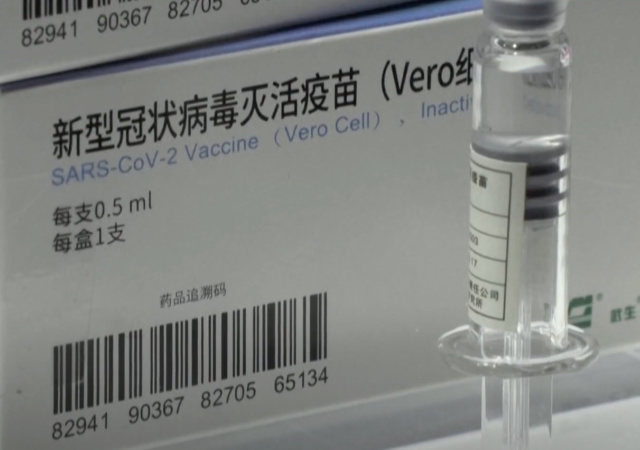Report: Pentagon Ran Year Long Social Media Campaign Against China’s COVID Vaccines

A Reuters investigation revealed that the Pentagon launched an anti-vaccine campaign against China’s vaccine in the summer of 2020.
The military used social media to undermine any vaccines or aid coming out of China during COVID.
They started the campaign in the spring of 2020. The military expanded out of Southeast Asia but ended it in mid-2021.
Through phony internet accounts meant to impersonate Filipinos, the military’s propaganda efforts morphed into an anti-vax campaign. Social media posts decried the quality of face masks, test kits and the first vaccine that would become available in the Philippines – China’s Sinovac inoculation.Reuters identified at least 300 accounts on X, formerly Twitter, that matched descriptions shared by former U.S. military officials familiar with the Philippines operation. Almost all were created in the summer of 2020 and centered on the slogan #Chinaangvirus – Tagalog for China is the virus.
One fake account claimed, “COVID came from China and the VACCINE also came from China, don’t trust China!”
Another account said, “From China – PPE, Face Mask, Vaccine: FAKE. But the Coronavirus is real.”

Twitter removed the accounts once it determined “they were part of a coordinated bot campaign based on activity patterns and internal data.”
The campaign grew to Central Asia and the Middle East:
Tailoring the propaganda campaign to local audiences across Central Asia and the Middle East, the Pentagon used a combination of fake social media accounts on multiple platforms to spread fear of China’s vaccines among Muslims at a time when the virus was killing tens of thousands of people each day. A key part of the strategy: amplify the disputed contention that, because vaccines sometimes contain pork gelatin, China’s shots could be considered forbidden under Islamic law.
Reuters did not see any evidence that the military targeted Americans with the campaign.
One senior Pentagon official confirmed the campaign happened, but did not provide detaiils.
A spokeswoman gave the usual word salad, saying the Pentagon “uses a variety of platforms, including social media, to counter those malign influence attacks aimed at the U.S., allies, and partners.”
The spokeswoman also pointed out that China had run a “disinformation campaign to falsely blame the United States for the spread of COVID-19.”
Because two wrongs totally make a right, right? Good Lord. “Well, they did it first!!”
Military leaders responsible for the area pressed those in Washington to do something to counter China:
A senior U.S. military commander responsible for Southeast Asia, Special Operations Command Pacific General Jonathan Braga, pressed his bosses in Washington to fight back in the so-called information space, according to three former Pentagon officials.The commander initially wanted to punch back at Beijing in Southeast Asia. The goal: to ensure the region understood the origin of COVID while promoting skepticism toward what were then still-untested vaccines offered by a country that they said had lied continually since the start of the pandemic.A spokesperson for Special Operations Command declined to comment.
Health professionals cannot believe the campaign happened:
“I don’t think it’s defensible,” said Daniel Lucey, an infectious disease specialist at Dartmouth’s Geisel School of Medicine. “I’m extremely dismayed, disappointed and disillusioned to hear that the U.S. government would do that,” said Lucey, a former military physician who assisted in the response to the 2001 anthrax attacks.The effort to stoke fear about Chinese inoculations risked undermining overall public trust in government health initiatives, including U.S.-made vaccines that became available later, Lucey and others said. Although the Chinese vaccines were found to be less effective than the American-led shots by Pfizer and Moderna, all were approved by the World Health Organization. Sinovac did not respond to a Reuters request for comment.
CLICK HERE FOR FULL VERSION OF THIS STORY